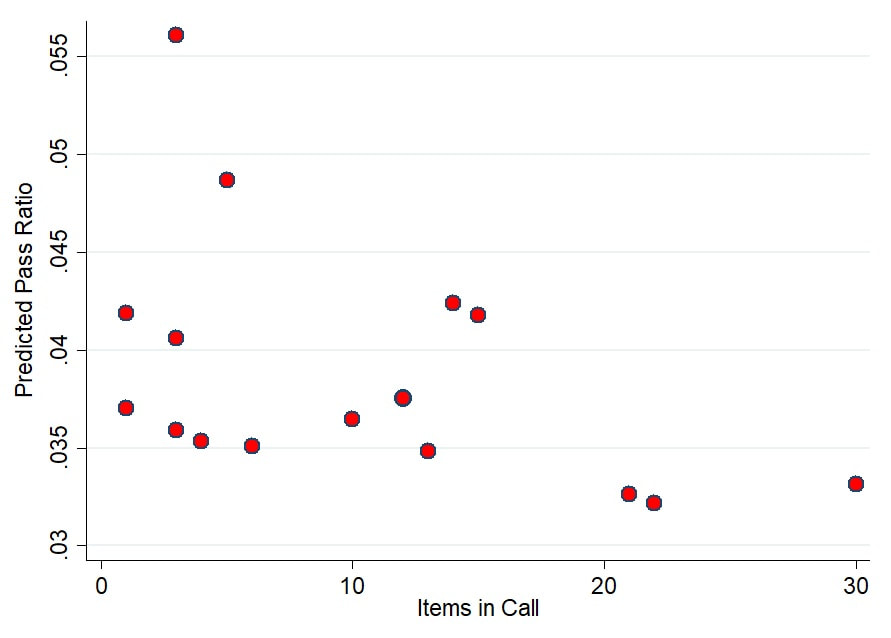|
Governor Abbott's twenty item special call is peppered with controversial issues. It still isn't as expansive as “Ma” Ferguson’s 153 item bonanza in the first (of four) called special sessions in 1933. (the first special session included legislation modifying rules banning boxing on Sunday for the Olympics). Governor Abbott has taken a more hands-on role in the special than he did in the bulk of the regular 85th Session but this isn’t a guarantee of success, especially with Speaker Straus’s cagey remark in Lawrence Wright’s New Yorker article that the House is under “no obligation to pass anything.” Do the number of items on a governor’s call have an effect on the volume of legislation passed? A little. The graph below estimates the ratio of bills introduced to those passed graphed against the number of items on a special session call from 1991 to 2013.* The effects are modest but show an interesting pattern: more items on a call reduce the predicted pass rate of legislation in the special session. The passage of a bill doesn’t guarantee the bill is the “right” bill by a governor’s definition, but this gives us a flavor for how more items on a call reduces legislative productivity in a special. Governor Abbott’s rather large menu of items may please the Republican base but could also hurt his chances of getting more legislation “signature ready.” * Data nerd stuff: Estimates are derived from a generalized linear model with the ratio of introduced to passed bills as the dependent variable (a ratio between 0-1), controlling for the difference in party control (total Democrats minus total Republicans), and the absolute value of the ideal points between the House and Senate chambers (the mean ideal point of those who voted in the majority, using Shor and McCarty ideological scores, provided generously by Boris Shor). Standard errors clustered by session.
Comments are closed.
|
BR
Brandon Rottinghaus is a Professor of Political Science at the University of Houston Archives
June 2019
Categories |
Proudly powered by Weebly

 RSS Feed
RSS Feed